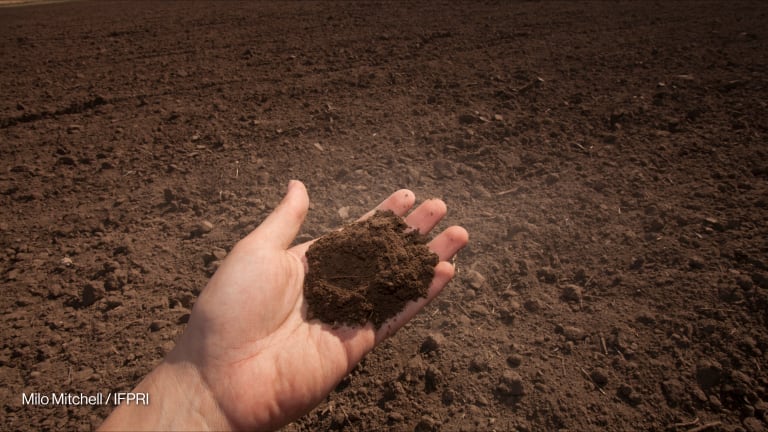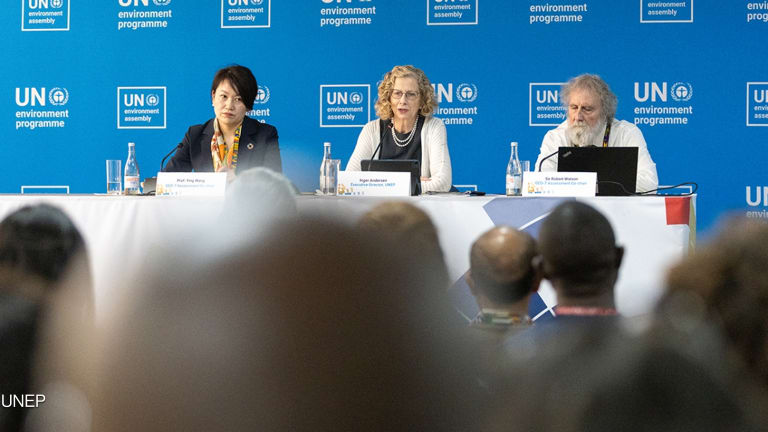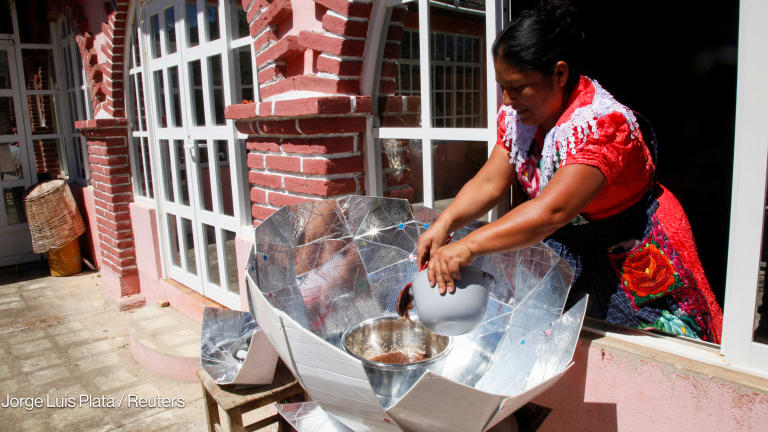
CANBERRA — A new report released by the Intergovernmental Panel on Climate Change provides much-needed evidence to governments worldwide on the difference a rise in global temperatures of 1.5 degrees Celsius above preindustrialized levels will have compared to the 2 degrees pledge in the Paris Agreement on climate change.
Released in Incheon, South Korea, Monday, the new “Special Report on Global Warming of 1.5ºC” highlights the difference half a degree will make to future humanitarian crises and the ability to create a secure world for future populations. It was developed with 133 contributing authors covering 40 countries, who analyzed 6,000 studies. The result was approved by all IPCC member countries.
Governments will review progress on the Paris Agreement at the end of this year, with the new report forming an important evidence base of whether the agreement needs to mandate a lower target to save lives and livelihoods, Hoesung Lee, the chair of IPCC, said.
More on climate change:
► Bangkok climate talk leaves 'heavy lifting' to Poland COP24
► New Paris climate agreement proposal would 'let rich countries off the hook,' activists say
► Ocean advocates find new ways to link their cause with climate change
“Governments have a clear understanding of the implications of warming [to] 2 degrees Celsius,” Lee explained at a press conference for the report. “But little was known about warming to 1.5 degrees Celsius, and the IPCC report and the scientific research it catalyzed was trying to fill that gap.”
Global temperatures have already risen 1 degree above preindustrialized temperatures, resulting in extreme weather, rising water, and shrinking ice caps. Global temperatures are currently predicted to reach 1.5 degrees Celsius between 2030-2052, with worsening conditions.
But maintaining it at this level, the research finds, will still mean 10 million fewer people exposed to risk of rising seas and a reduced likelihood of them becoming climate refugees. There will be less extreme heat and rainfall, reduced impact on biodiversity, a smaller reduction in yields of maize, rice, and wheat, while the number of people exposed to water shortages will be reduced by 50 percent compared to a 2 degree increase.
Overall, it will mean hundreds of millions fewer people exposed to climate risks, according to Panmao Zhai, co-chair of the IPCC working group from the China Meteorological Society.
One of the most telling impacts is on global coral reefs, which are not only important to global food chains but provide key protection to island nations from extreme weather events. A 1.5 degree increase in temperature will see reefs decline by 70-90 percent while 2 degrees will result in 99 percent losses.
Lee said that limiting global warming to 1.5 degrees is “not impossible, but will require unprecedented transitions in all aspects of society.”
By 2030, carbon dioxide emissions will need to be reduced by 45 percent from 2010 levels and reach a net zero by 2050. Deep emission reductions will need to occur in all sectors of society with dramatic behavioral changes and increased investment in low-carbon options and technology.
Reduction in transport emissions needs to become a priority for all governments, with bioenergy, changed land management, and more trees helping to remove carbon dioxide from the atmosphere.
Current government pledges, the report explains, are not doing enough to keep targets below 1.5 degrees.
Maintaining global temperature to 1.5 degrees above preindustrialized temperatures will have important benefits for the world’s poorest population, Lee added, including a reduction in current and future health risks.
By creating a link to the Sustainable Development Goals for a reduced global warming target, he believes there will be a stronger mandate for governments to support the measure.
The development sector is already heeding the call, showing signs they will be putting pressure on governments worldwide to take note of the science.
“This IPCC report is the most unique and important climate science report we’ve had,” Executive Director of Greenpeace International Jennifer Morgan said.
“Governmental and corporate leaders have nowhere to hide and must show they understand the science by acting with the urgency it demands. But we all have a role. Every person has to do everything in their power to change course and follow the plan that is included in the IPCC report."








